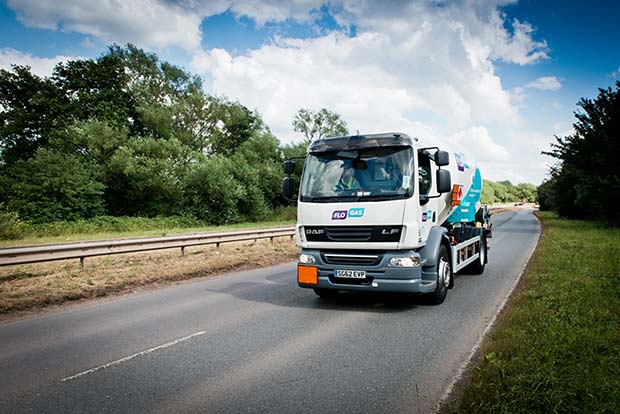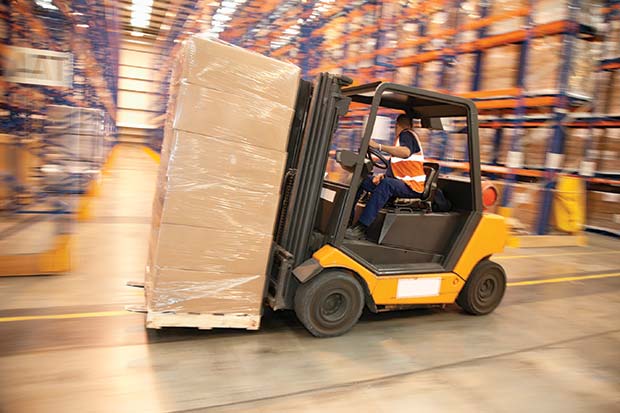Following the launch of the government’s Clean Growth Strategy in October, Warehouse & Logistics News takes a closer look at what this means for the industry – and why liquefied petroleum gas (LPG) could hold the key to helping logistics businesses achieve its vision.
 Through the recent publication of its Clean Growth Strategy, the government’s Department for Business, Energy & Industrial Strategy has further underlined its commitment to creating a lowercarbon UK. What’s more, decarbonising heat in rural buildings – and in particular, helping off-grid businesses reduce their dependence on oil – is a key focus of the report’s recommendations.
Through the recent publication of its Clean Growth Strategy, the government’s Department for Business, Energy & Industrial Strategy has further underlined its commitment to creating a lowercarbon UK. What’s more, decarbonising heat in rural buildings – and in particular, helping off-grid businesses reduce their dependence on oil – is a key focus of the report’s recommendations.
Given that scores of warehousing and logistics operations aren’t connected to the mains gas network, this is set to affect many in the industry – especially those currently using high-carbon fuels like coal, oil and diesel. The good news is, switching to a cleaner fuel can mean big cost and efficiency savings, not to mention operational benefits.
As a greener off-grid alternative, that’s where LPG comes in to its own. But what exactly does it have to offer over its more traditional counterparts?
Low-carbon credentials Firstly – and most importantly, in the context of the Clean Growth Strategy – LPG is the lowest carbon conventional off-grid fuel available today. It emits 15% less CO2 than kerosene, 29% less than gas oil and 25% less than heavy fuel oil (HFO), with low particle emissions, low NOx (nitrogen oxide) emissions and low sulphur content. All this means that a simple switch to LPG could significantly reduce a business’s carbon footprint (especially for high energy users in the warehousing and logistics industry).
Financial savings
Another key attraction of LPG for budget-conscious warehouse and logistics managers is its cost efficiency. LPG has a higher calorific value than oil, which essentially means it generates more energy when burned – so with LPG, you get more heat for your money. Not only that, but modern condensing LPG boilers cost less upfront to install than oil boilers, and less to run in the long term too (given oil boilers require much more regular maintenance).
 Versatility
Versatility
As LPG is available in both bulk and cylinder supply options, it is easy to transport and store, and can cater to virtually any business requirement. In its bulk form, it is kept in an on-site tank, which is ideal for larger operations with significant energy needs – whether that’s space heating, fuelling manufacturing and industrial processes, powering forklift truck (FLT) fleets or all of the above. What’s more, leading LPG supplier Flogas’ tanks are all fitted with inbuilt telemetry units, which monitor how much fuel has been used and automatically trigger an order for more when levels drop below an agreed point.
LPG cylinders are ideal for smaller-scale needs, and Flogas offers a full portfolio – in sizes ranging from 3.9kg right up to 47kg. Its specialist Gaslight cylinders are particularly popular in the logistics industry, as they are designed specifically for use in FLTs – and in comparison to diesel-powered trucks, LPG-powered FLTs are cleaner and more cost-effective to run. Not only this, but Gaslight cylinders are almost half the weight of traditional LPG cylinders – making handling and transportation simpler than ever. Despite being so lightweight, their toughened plastic and fiberglass composition means they are also incredibly robust. Last but not least, Gaslight cylinders and translucent, so FLT operators can easily see when fuel is running low. Accessibility
Of course, LPG isn’t the only solution to cleaning up the UK’s energy landscape; renewable technologies (such as heat pumps and biomass boilers) undeniably have a part to play in the long term too. However, the fact is that in the UK, renewables aren’t yet a financially viable or accessible option for everyone.
A major benefit of LPG is that it is already a widely available energy source with national distribution. Flogas for instance, with more than 30 years’ experience in the business, has more UK depots than any other supplier. This robust network and longstanding expertise allows for quick, easy and effective switch-overs that cause minimal disruption to business.
The big picture
For off-grid businesses, the benefits of switching away from high-carbon fossil fuels in favour of LPG are wide-ranging and compelling. As government support for national decarbonisation strengthens in line with initiatives like the Clean Growth Strategy, uptake of LPG in rural commercial applications is set to increase too – and the warehousing and logistics industry is no exception.
FLOGAS
Tel: 03333 319 862




Comments are closed.